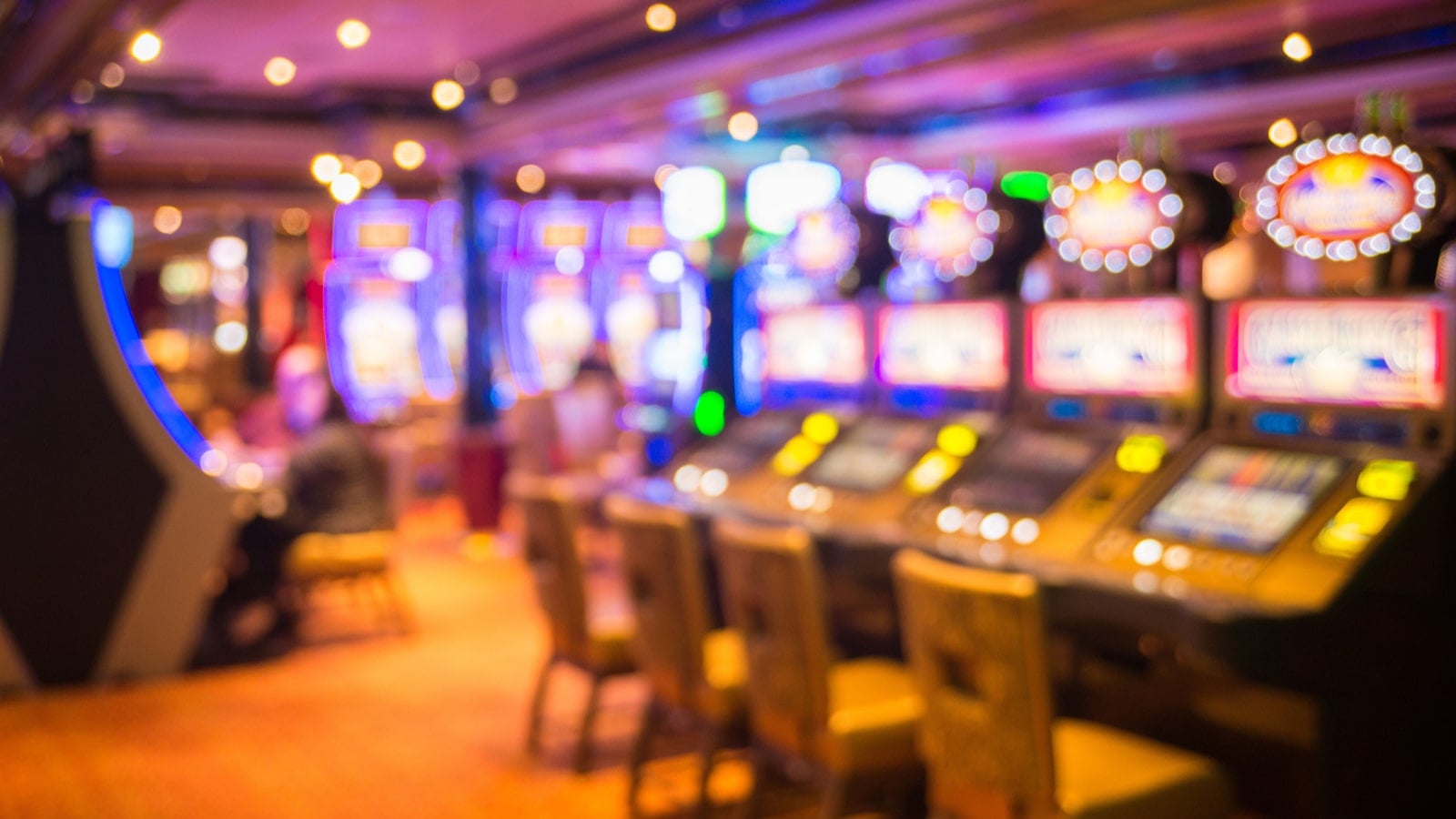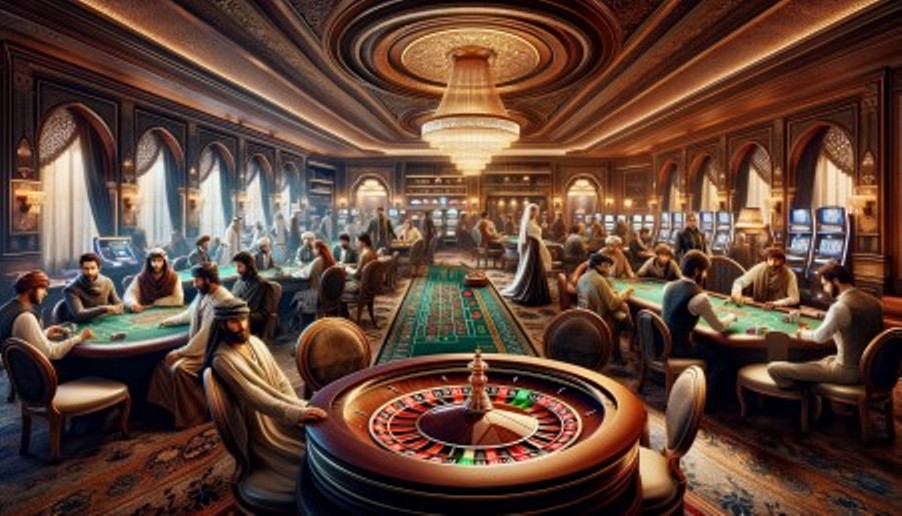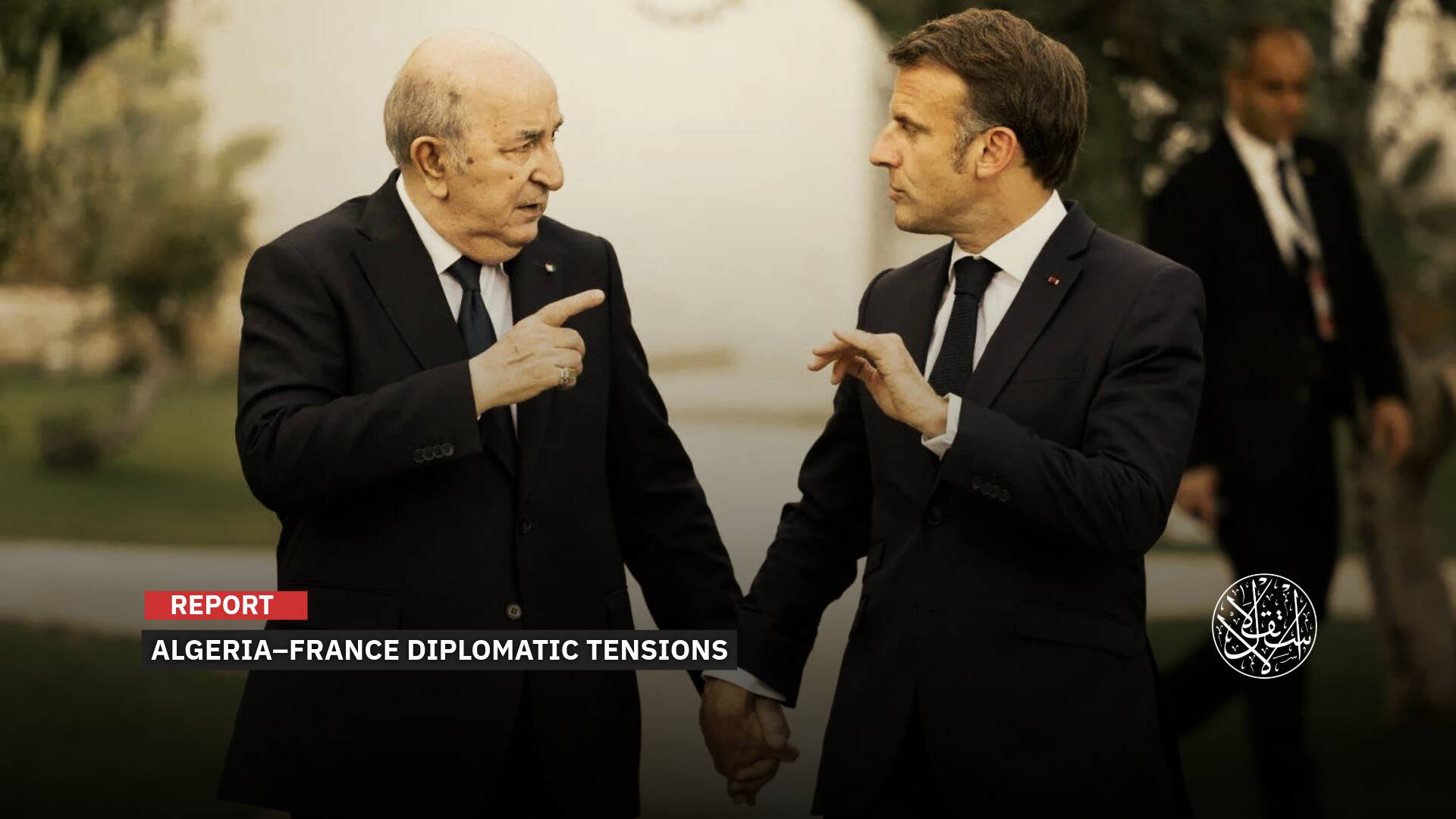Rolling the Dice: This Is How UAE Is Legalizing Gambling

Gambling casinos are considered centers for money laundering and prostitution activities.
Disregarding Islamic values and Arab traditions, UAE President Mohammed bin Zayed (MBZ) has officially granted the world’s largest gambling company its first license for gambling activities in the UAE.
On October 7, 2024, Bloomberg revealed that Wynn Resorts, an American publicly traded corporation and an operator of high-end hotels and casinos, received the inaugural permit to open a commercial casino in the UAE, in defiance of Islamic law, which Abu Dhabi claims is the cornerstone of its legal framework.
The UAE's decision to license global gambling clubs and develop entire cities dedicated to gaming coincides with public assertions aimed at attracting tourists, funds, and investments, as well as secretive concerns related to money laundering.
This move is also seen as part of the escalating competition between MBZ and Saudi Crown Prince Mohammed bin Salman (MBS) over entertainment ventures, following the UAE’s recent legalization of alcohol and the facilitation of prostitution through new laws.

First and Largest
While Muslims were performing Friday prayers on October 4, 2024, in the mosques of Abu Dhabi, Wynn Resorts announced the opening of the first and largest casino in their country, part of a series of decisions aimed at erasing their Islamic identity.
The global gambling company stated in a press release that it has received the first license to open a massive casino in the UAE from the General Commercial Gaming Regulatory Authority (GCGRA) which was established by the UAE to oversee gaming activities in the country.
On September 3, 2023, the UAE announced the establishment of the "General Authority for Regulating Commercial Games" to function as a federal body "to establish a regulatory framework for commercial games and lotteries," appointing veterans from the American industry to lead it, according to the Emirates News Agency (WAM).
Wynn Resorts, headquartered in Las Vegas, announced its plans to develop a luxury resort on Al Marjan Island in Ras al-Khaimah for gambling in collaboration with the UAE’s Rak Hospitality Holding.
According to Bloomberg Intelligence, the company will build an integrated casino resort worth $3.9 billion in Ras al-Khaimah, set to open in 2027, effectively legalizing gambling on UAE soil.
On October 9, 2024, Wynn increased its budget for the casino project in the UAE to $5.1 billion, an increase of $1.2 billion from previous estimates, according to the Asian Gaming Brief on October 9, 2024.
Bloomberg estimated the UAE's gambling revenue to be equivalent to 1.3% of the country’s GDP, with projections reaching approximately $6.6 billion—surpassing the revenues recorded in Singapore’s casinos, which the UAE seeks to outpace as it transforms into a gambling hub.
The casino resort is expected to generate between $450 million and $600 million in annual cash flow, according to Middle East Economy on April 28, 2023.
As reported by iGaming Business (iBS) on October 5, 2024, the "Wynn Project," set to open in 2027, is located on al-Marjan Island, just 15 minutes from Ras al-Khaimah International Airport and 45 minutes from Dubai International Airport.
“It will have a gaming floor, 1,000+ hotel rooms, convention facilities, shopping and restaurants,” according to iBS.
On April 27, 2023, the Emirati Khaleej Times revealed that Wynn Resorts, the global developer and operator of luxury resorts listed in the U.S., had chosen "Wynn Al Marjan Island" as the official name for its resort planned in Ras al-Khaimah, with a budget of 14.3 billion dirhams ($3.9 billion).
Hyther Nizam, President of Middle East and Africa, Zoho Corp stated that the goal of this project is “to empower UAE businesses to achieve their full potential and contribute to the nation’s economic growth and development.”
The project will span 115 acres on al-Marjan Island in Ras al-Khaimah.
In addition to the massive casino under construction on the artificial al Marjan Island, which is expected to be fully completed by 2027, Casino Beats revealed on September 3, 2023, that another casino license near Jumeirah Beach in Dubai will be licensed in the near future.
This follows the UAE granting a license to regulate lotteries for the first time on July 29, 2024, as a step toward legalizing casinos and other forms of gambling.
The General Authority for Regulating Commercial Games in the UAE announced that a company called The Game LLC will operate under the umbrella of "UAE Lottery."
The agency stated that the company is "a commercial gaming operator specializing in game development, lottery operations, and gaming-related content," according to al-Arabiya.

Ethical Implications
The legalization of gambling marks a significant deviation from the principles of Sharia law as the rulers of the UAE transform their nation into a haven for vice, officially sanctioning alcohol and cohabitation without marriage.
Legalizing gambling represents a profound shift for the Emirates, despite their claims of adhering to Islamic law as a primary source of legislation.
This action could lead to a fundamental change in the UAE, potentially pushing its youth toward moral depravity and it reveals the hypocrisy of Abu Dhabi's leaders, who don the cloak of Islamic law while secretly endorsing practices that are expressly prohibited by Islam.
Authorizing gambling bears adverse consequences for Gulf society, likely attracting individuals from across the region where gambling is prohibited, alongside Israelis who have begun to view the UAE as a second home, traveling there to partake in activities banned in “Israel”.
Moreover, the UAE has enacted a series of legal amendments permitting long-term visas, allowing unmarried couples to cohabitate, and easing restrictions on the purchase and consumption of alcohol.
Bloomberg expressed astonishment at how the UAE, as a Muslim nation that positions Sharia as its foundational legal source, permits gambling despite its prohibition in Islam, deeming it a significant departure for a country under Mohammed bin Zayed.
The outlet noted that gambling is banned in Islam and also illegal in the UAE, where laws impose fines or prison sentences of up to two years for violators.
This raises critical questions about how gambling can be legalized while existing laws impose penalties on those who participate in it.
A leaked American diplomatic cable from 2004, revealed by WikiLeaks, indicated that “plans (...)(possibly) legalized gambling, have been put on ice due to deference to Sheikh Zayed's wishes.”
However, in recent years, the country has moved closer to establishing casinos, culminating in the official approval on October 4, 2024.
In 2018, the renowned British ship "Queen Elizabeth 2" was opened as a hotel in Dubai after renovations costing over $100 million, still featuring slot machines on board.
That same year, the Caesars hotel, which hosts gambling clubs, opened a branch in Dubai, and construction continues on various casino projects throughout the Emirates.
The UAE authority overseeing gambling activities has confirmed that casino companies can apply to operate across all seven Emirates, effectively institutionalizing gambling nationwide, despite opposition from some Emirates on the grounds of Sharia compliance.
Abu Dhabi and Ras al-Khaimah have taken the lead among Emirates looking to open casinos ahead of Dubai, which has laid immediate plans to legalize gambling. However, Emirates like Sharjah, which adhere more closely to Sharia law, may oppose the establishment of casinos within their borders.
Why a Gambling Casino?
Gambling establishments are often associated with various illicit activities, including money laundering, corrupt dealings, prostitution, and alcohol trafficking.
Thus, the UAE's decision to inaugurate its first and largest casino raises questions about its true intent, especially given reports and international organizations accusing Abu Dhabi of becoming one of the world’s premier money-laundering hubs.
Financial experts argue that the gambling zone is not merely about entertainment and attracting tourists, but rather a conduit for laundering illicit funds, particularly for Russian and global mafia networks.
According to the Business Times (BT), UAE, especially Dubai, stands to gain financially from legalizing gambling, as the region witnesses an influx of newcomers and tourists eager to enjoy its status as "a wealth haven."
Another rationale presented by Gulf observers for the UAE's move to legalize gambling and establish grand casinos is to compete with the perceived "corruption" of Saudi Arabia, which has embarked on a series of initiatives, including entertainment ventures and women's wrestling contests, aimed at attracting investments as the oil era wanes.
Some speculate that among the motivations is a response to Crown Prince Mohammed bin Salman’s so-called "reforms," which many view as a departure from religious and moral principles under the guise of investment, evidenced by incidents like the hosting of an Australian singer who performed against divine principles.
Moreover, this initiative is seen as part of a broader trend to liberalize the Gulf state, which is increasingly pursuing wealth and fame, having already tacitly permitted alcohol consumption. The only barrier to formally legalizing gambling appears to be its identity as the birthplace of Islam.
Reuters reported on October 5, 2024, that these moves to allow gambling come amid escalating economic competition in the Gulf, particularly with Saudi Arabia.
It noted that the gambling zone emerged after the UAE officially legalized gambling in September 2024, implementing what it termed "liberal legal reforms" in an effort to maintain its status as a commercial, tourism, and financial hub in the region amid rising competition from Riyadh.
The UAE is also known for its extensive lottery operations, where both citizens and expatriates purchase tickets for draws held at places like Dubai International Airport, where the sale of duty-free car lottery tickets is especially prevalent.

Money Laundering
Economic experts assert that gambling casinos serve as a refuge for dirty money laundering, further solidifying the UAE's role as a transit hub for laundering funds derived from drugs, prostitution, and corruption, as the facilitation of money laundering inherently promotes corrupt practices.
On June 2, 2022, Euronews reported insights from Maira Martini, the Research and Policy Expert on corrupt money flows at the Transparency International Secretariat in Berlin (TI-S), indicating that casinos often prefer to turn a blind eye to the sources of their customers' funds, posing significant risks of enabling a shadow economy.
Martini elaborated on the mechanics of money laundering within a casino, where a customer arrives with "dirty" money—derived from illegal activities such as drug trafficking or human smuggling—without anyone in the establishment questioning its origin.
From the moment the customer begins participating in games, winning or losing, the funds are effectively laundered, as the individual can then officially declare the source of this money, giving it a legitimate origin.
For instance, if an employee earns €1,000 a month, justifying the purchase of a €1 million house would raise suspicions of bribery. However, if the individual claims to have won this money in a casino, they can spend it without any concerns.
The ease of laundering money makes corruption all the more tempting for individuals, as they realize there are mechanisms to utilize bribe funds without fear of scrutiny, according to Martini.
On September 4, 2023, the Associated Press noted that the UAE's move to legalize gambling is rooted in the long-standing recognition that casinos and lotteries are methods for generating revenue in the UAE, particularly to bolster the tourism sector, especially in Dubai.
Both the Associated Press and Bloomberg highlighted that the casinos and the substantial cash flows they generate will increase the risk of money laundering.
They explained that in recent years, beneficiaries of war, terrorist financiers, and drug traffickers under U.S. sanctions have exploited the Dubai real estate market as a safe haven for their assets.
Additionally, Ras al-Khaimah found itself embroiled in the case of a man from Alaska who laundered $1 billion that was held in South Korea on behalf of Iran.











